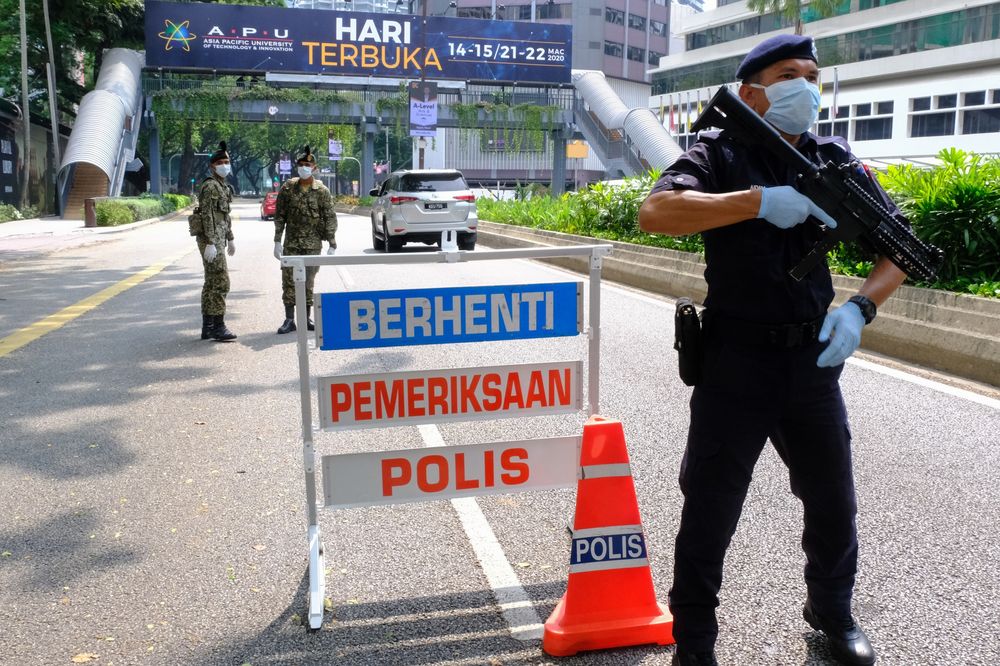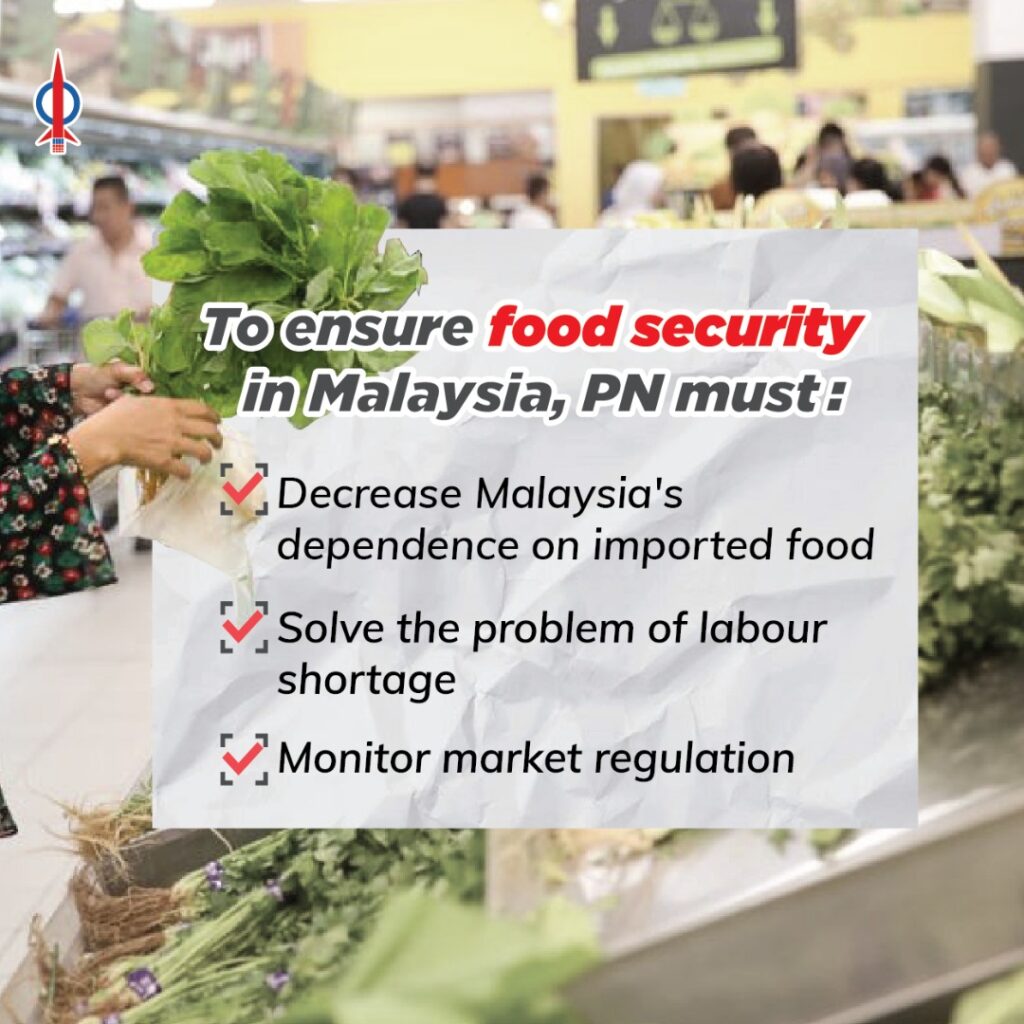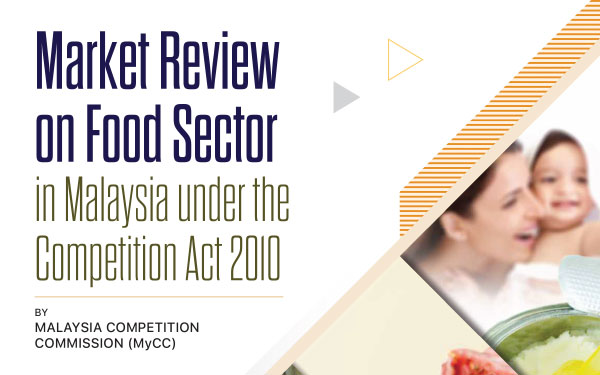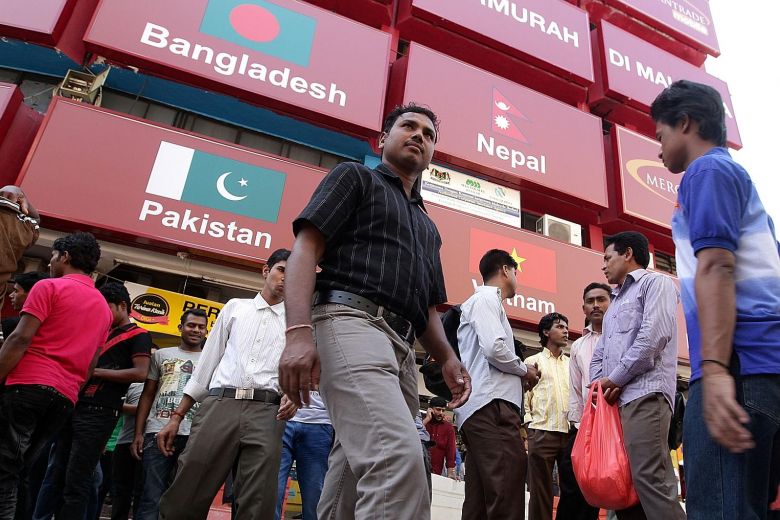
With repeated outbreaks of the Covid-19 pandemic, countries around the world are still imposing semi-lockdowns, thus affecting the supply chain of the global trade, including food transportation.
Although the Malaysian government has repeatedly promised that the local food supply is functioning well, the potential impact of the pandemic on agriculture is slowly emerging.
Agriculture sector has always been an important pillar to the stability of a country. The government should be concerned about formulating long-term strategies to ensure that our agriculture sector can meet the needs of all citizens on the production, supply and consumption ends.

After the pandemic, the number of B40 low-income groups in Malaysia has increased, which is certainly a negative sign. Once food prices fluctuate, the low-income groups will be directly impacted on. This is because even if food supply is not affected, low-income groups still have to face high prices of food as consumers and increasing financial burden as a result, which in turn creates social problems.

Perhaps subsidies can stabilize the market in the short term, but in the long run, it can hardly bring about any positive effect on increasing productivity. It is therefore not the most efficient way to plan and usher in sustainable development of agriculture and food production.

To ensure food security in Malaysia during the pandemic, the government must be visionary in planning in three aspects, namely (1) increasing the self-sufficiency rate of food to reduce our reliance on imported food, (2) solving the problem of labour shortage, and (3) strengthening food safety alert, monitoring as well as market regulation.
(1) Increasing the self-sufficiency rate of food to reduce our reliance on imported food
Malaysia actually can produce a lot of high-quality agricultural products, but it also relies heavily on imported food. Even if it succeeds in overcoming the pandemic, the world will inevitably face food crisis due to intensified climate change in the future. Increasing food self-sufficiency rate is therefore the fundamental way to ensure Malaysia’s food security.
One of the main reasons that Malaysia can’t improve its food self-sufficiency rate is that the demand for imported food remains significantly high.
The government has always been issuing Approved Permits (AP) to stabilise food prices, by allowing a small number of individuals or companies to intervene in economic activities in various fields by importing a specified amount of goods, such as vegetables and meat from abroad.
However, because the AP application process and approval process have not been transparent and, compounded by the lack of tracking and monitoring mechanisms, the AP system eventually became a hotbed for rent-seeking activities as well as corruption.

The Covid-19 pandemic does not merely test our health system pandemic response, but also highlights the importance of food security. Judging from the current international situation, the repeated suspension of trade and food supply may affect the supply and demand of our daily necessities in the near future.
It is only by clearly formulating strategic goals at the policy level, and by assisting small and medium farmers to increase the self-sufficiency rate of food, can Malaysia reduce the reliance on imports by the supply side as well as the consumer side. By doing so, farmers can be supported at all levels in order to continue farming and producing food.
(2) Solving the problem of labour shortage
Malaysia’s agriculture has long relied on migrant labour for intensive production. However, in the wake of the pandemic, the government has restricted the entry of migrant workers, thus leading to a shortage of labour in related industries such as agriculture. Compounded by the fact that the local construction and industrial sectors are also rushing to attract foreign workers with higher salaries, the number of migrant workers engaged in agriculture and plantation sectors has dropped significantly.
Similar problems are experienced by many countries all over the world. Based on the latest data from the Food and Agriculture Organization of the United Nations (FAO), in Australia, nearly half of its vegetable farmers and workers are temporary immigrants. British farmers need 70,000 to 80,000 seasonal laborers from Eastern Europe for crop harvesting and food processing every year.
Also, Canadian farms need more than 60,000 immigrant workers, in which 30% are in the seafood industry. In Brazil, farmers have problems with the logistics of coffee harvests, whereas in India, due to the restrictions of the pandemic lockdown, a large number of local seasonal laborers cannot go out to work.
The lack of labour in the agricultural sector will result in a decline in output, while the increase in costs in all aspects of production will lead to the adverse effects of rising agricultural prices. This is a potential problem that the government must be concerned about.
To overcome the problem of labour shortage, Malaysia can promote industrial transformation and upgrading by adopting mechanization and automation. However, the biggest obstacle to the application of high-tech automated agricultural technology is none other than the investment ability of farmers, because profit margins of many farmers are very meagre. It is extremely difficult to push the farmers to spend a lot of money to purchase agricultural robots. Therefore, to ask small and medium farmers to upgrade their industries in the short term is nothing more than an empty talk.

The government must face up to this reality in order to carefully plan and study how to increase the productive capacity in the agricultural sector, including revising Visa regulations, amending and relaxing the legalisation schemes for illegal migrant workers, and re-allocating labour for different industries.
This will ensure that our human resources are not wasted, and prevent the outbreak of other social problems caused by unemployment or illegal migrant workers. However, under the pandemic, the government and employers must also ensure that occupational safety and health measures are in place. Both migrant and local laborers should enjoy equal health and social protection measures.
(3) Strengthening food safety alert, monitoring as well as market regulation
The uncertainties in global food production and trade have increased the difficulty to regulate our local food market. The government must strengthen food safety alert, monitoring and market regulation.
The pandemic, initially started off as a public health crisis, has gradually turned into economic, social and international trade crisis. Considering that food is the most basic need of a society, many food-producing countries have consciously raised trade barriers on food. This is not just a short-term emergency measure, but likely to develop into a long-term trend.
The government must pay close attention to the trends of global food market, especially to track and monitor the policy changes of the world’s major food-producing and exporting countries, in order to swiftly adjust our food import and export strategies.
This includes ensuring that the supply of important agricultural resources, such as seeds, pesticides, fertilizers, agricultural films, and feed, can be smooth and unimpeded. Its objective is to prevent the prices of these agricultural resources from fluctuating due to the uncertainties of currency exchange rates or trade supply, thereby increasing the production costs of small and medium farmers in Malaysia.
In the wake of the Covid-19 pandemic, the government must understand that the future of international free trade is changing. As such, our current level of food security must be improved by increasing our food production capacity to be self-sufficient.
Malaysia must strengthen the early alert and monitoring capabilities of the agricultural products market, as well as comprehensively improve our risk response and overall competitiveness of the agriculture sector.
Chiong Yoke Kong,
Tanah Rata State Assemblyman



